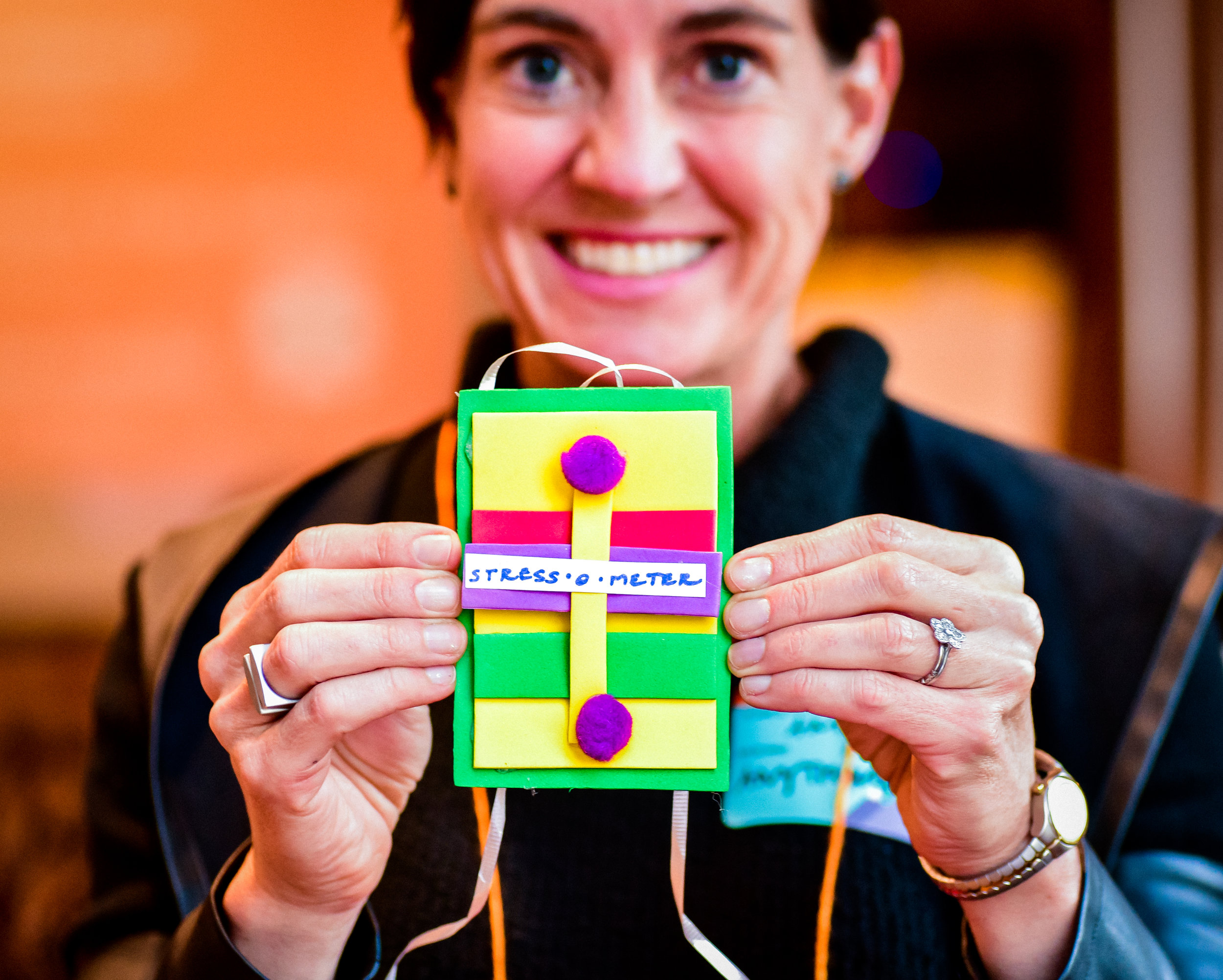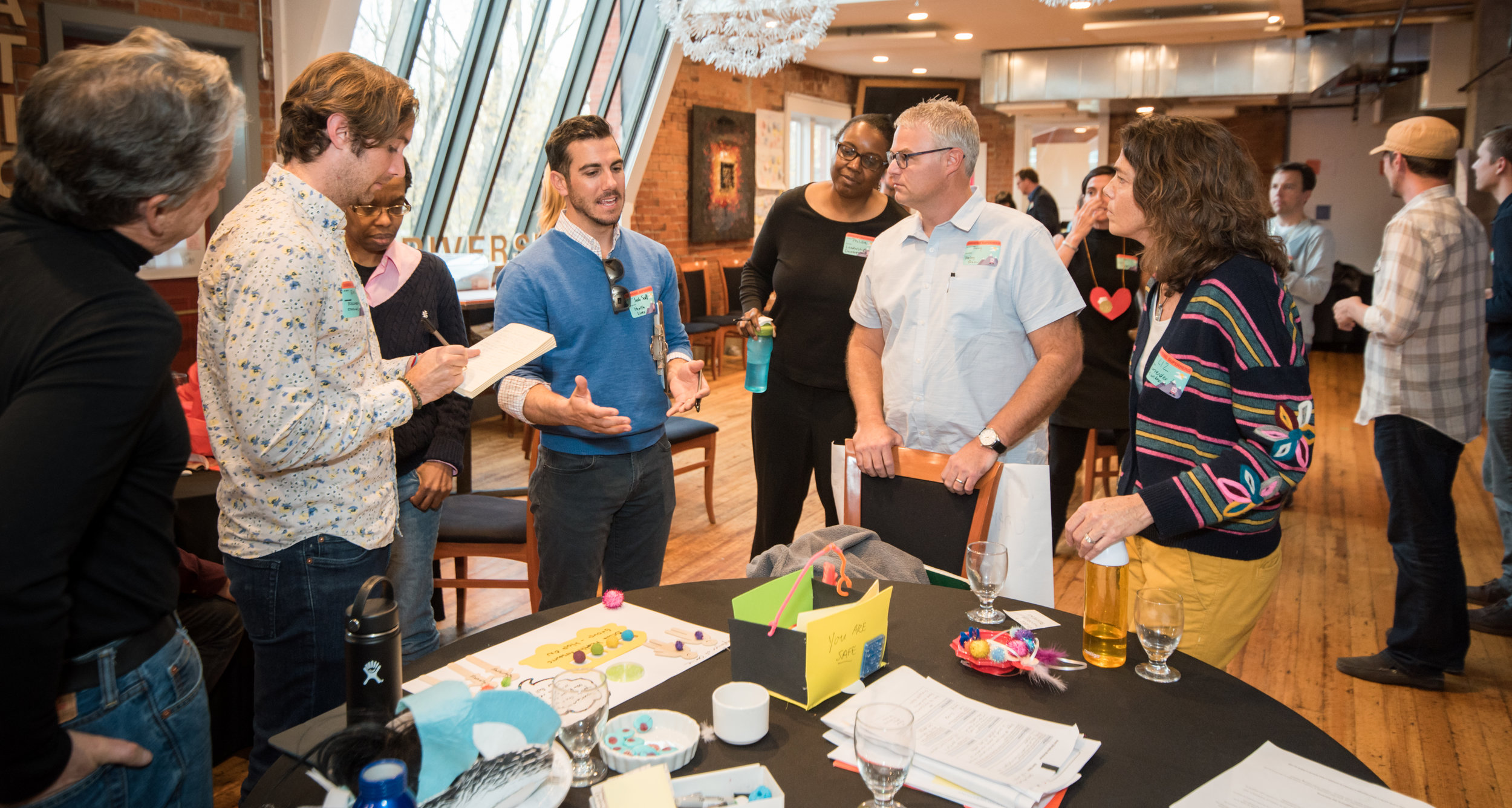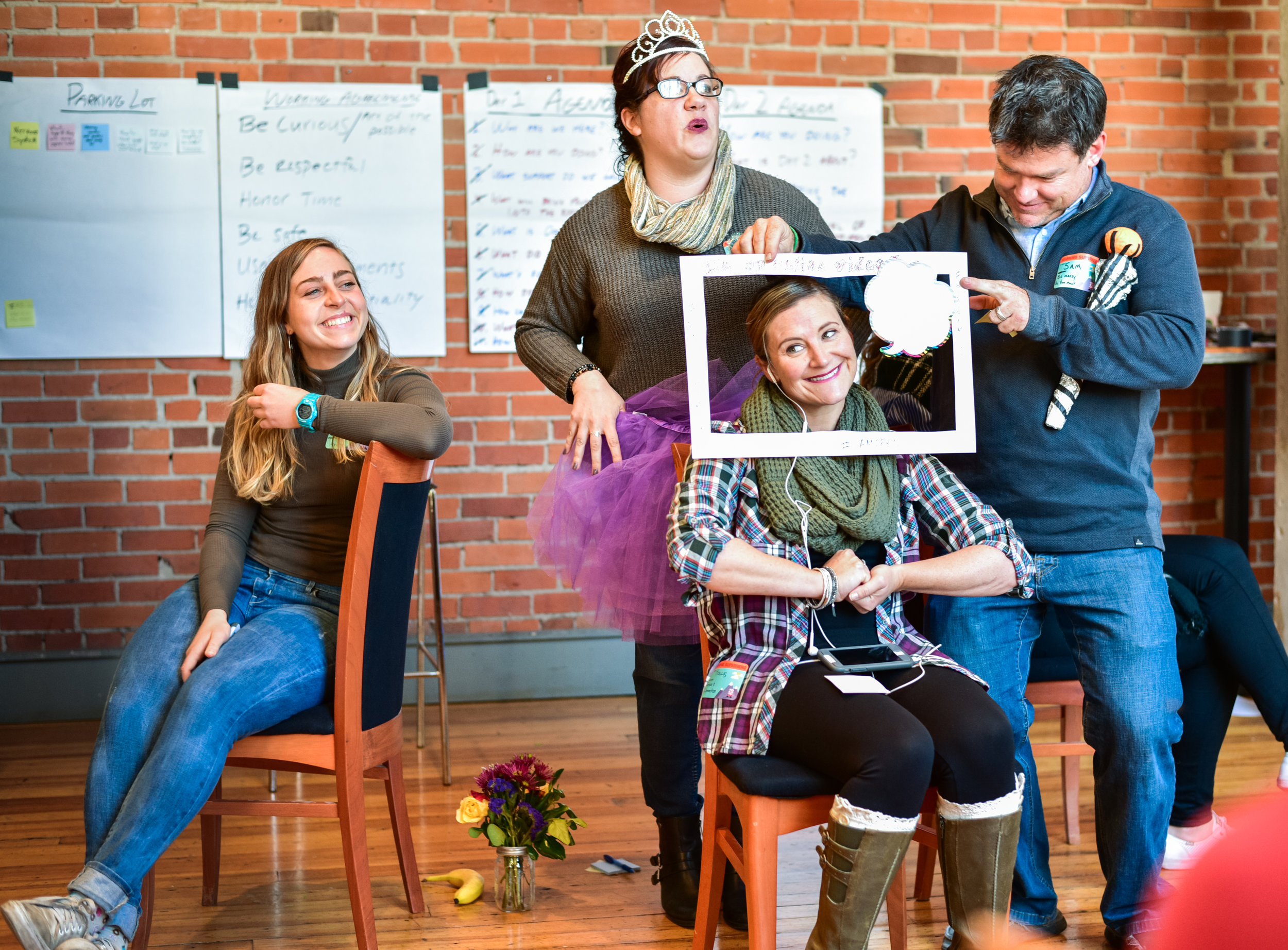Open Labs’ mission to help people with mental health conditions live openly.
Background
DEFINING THE PROBLEM
I co-founded the Open Labs nonprofit after three close friends were diagnosed with mental health conditions. Navigating the process, especially the return to work, surfaced the shame and stigma associated with mental health diagnoses and the deficiencies in services and products intended to support those with a condition. Alongside my co-founder, we set out to rethink the experience of going back to work and society after being diagnosed with a mental health condition.
GATHERING INSIGHTS
Focus group with people with mental health conditions
Knowing that solving the shame and stigma around mental health conditions is a complex problem, we partnered with Andrew Benedict Nelson, the Entrepreneur in Residence at the University of Southern California School of Social Work, to understand how to approach the problem. Using Nelson’s approach to changing societal norms, we identified what we were looking to change - it is not widely accepted to share about mental health conditions. The word ‘sharing’ was a critical insight. Instead of sharing back and forth between the two parties, simply disclosing was perceived to produce adverse outcomes.
We also learned about another challenge through the research: products and services intended to support people with mental health conditions often did not meet their needs. Despite being eager to share this feedback, people with mental health conditions could not find a safe channel.
Equipped with this insight, we sought to 1) promote sharing and 2) improve products and services for people with mental health conditions.
DEVELOPING THE SOLUTION
The Open Labs name describes what we do: ‘Open’, meaning a willingness for people with mental health conditions to share their experience with illness and ‘Labs’, a place where we knew the answer was not obvious, and we needed to test our way to find solutions to reduce stigma. The primary way we do this is by bringing together people living with mental health conditions, experts in workplace change, and those creating products and services for them in an environment where sharing is safe and accepted.
Here is a video where my co-founder explains the launch of the Open Labs process, as detailed in the case study below.
Case Study: Co-creating better products and services for neurodiversity
TOOLKIT
Design Research
Workshop Design
Program Evaluation
Program Management
Service Design
TEAM
Workshop Designers
Zach Nies (VP of Education at Techstars, Agile Coach)
Amy Reichlin (Psychologist, M.B.A.)
Sam Elmore (Psychologist)
Lance Powers (Open Labs co-founder, living with brain condition)
Public Health Measurement Experts
Dr. Taylor Moore
Thomas Rotering
MY ROLE
Led workshop planning, partnerships, and team recruitment
Led design of openness metric and measurement
Co-designed Open Labs’ research methodology
Co-created research process
Recruited and prepared workshop participants
Approach
This “Open Summit” workshop was the first formal rollout of the Open Labs’ model for bringing together people with mental health conditions and organizations building products and services for them. We had to account for attendees’ unique cognitive needs. A general characteristic of people with bipolar disorder (the primary condition of participants) is a tendency to have big ideas and divergent thinking but have trouble converging and executing a project to completion. With this in mind, the organizations I invited were able to commit resources to either improve their own solutions or create new solutions for the Open Labs’ members. These organizations brought funding, resources, and full-time staff to ensure the solutions from the workshop would be implemented and sustained.
Representatives from Colorado Entrepreneurs Mental Health Network and the National Mental Health innovation Center and people with mental illness during the participatory design session
Process
PRE-WORKSHOP
Prior to the workshop, I synthesized the previous research on the Open Labs method and detailed the goals and objectives of the session for the facilitation team. Together, we designed the workshop agenda and facilitation guide.
Research Report for Summit facilitation team
Snapshot of Summit Design draft
I also solidified the measurement approach. One of Open Labs' key metrics is the opposite of stigma, which we define as openness. I lead the work to create an SMS survey reminder that would ask participants to measure their openness after each day of the program.
Person responding to a text message
WORKSHOP
Attendees were taken on a journey through empathy-building activities to experiment design, which enabled them to feel safe sharing personal information and co-creating. The workshop facilitated the formation of teams comprised of Open Labs end-customers (people with mental health conditions) and partners (organizations serving them) through various design and facilitation techniques.
Custom worksheets inspired by the work of Jeremy Dillingham used through workshop to record ideas and prototype
Outcomes
Each of the project concepts formed a team comprised of an organization in mental health partnered with people with mental health conditions and an Open Labs staff member to oversee. Together, they designed a roadmap and entered into a cadence to continue communication, share insights, and iterate on solutions with the input of all needed stakeholders. There was a 12% overall increase in openness, a key metric of Open Labs.
Workshop concepts
Workplace toolkit and assessment
Storytelling training
Advocate and Ally training
Post-workshop, these concepts evolved into Open Labs projects:
Mental Health Friendly Workplace Certification in Partnership (read more) with Health Links (funded by the Center for Disease Control) to certify 200+ businesses in Colorado
Communication Training and Platform improvements (see case study) to teach people with a mental health conditions how to talk about their conditions without fear or shame
Parents Circle to share experiences on how to be an advocate and caretaker for someone with a mental health condition









